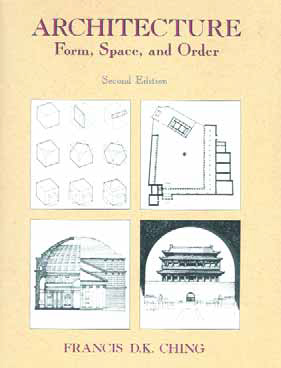philosophy
A paperback edition of Francis D.K. Ching's book, Architecture: Forms, Space and Order, had been sitting on my desk for less than a day when my colleague and friend Mark Webb spotted it and became pretty animated. He started talking about the book in a way that made it seem it was a given that we both should be completely familiar with it. I had, in fact, just picked up my copy at a used bookstore without ever having heard of Ching or knowing anything about his highly influential body of work. I soon learned that Webb and many other architecture and landscape architecture students (beyond yours truly) read Ching's work early on in their studies. Feeling as though I'd missed out on something important in my education, I dove into the text and soon came to understand why my friend
Watching the arc of a learning curve can be fascinating - particularly when you're not the one who's going through the process. This is why I take such pleasure in
The watergardening business has exploded in North America in the past few years - so much so that it's easily the fastest-growing segment of the watershaping industry. This wave of interest in naturalistic watershapes means that hundreds of people new to the craft of pond and stream building are now out there, working on all sorts of residential and even a few commercial projects. Some of these are landscape contractors working with water in a significant way for the very first time. Others are pool contractors who've
What makes for a great natural-style watershape? That's a huge question - one which a great many people have devoted their careers to exploring and for which almost every one of us will have a slightly different answer. As you will see here, my own response to the question starts with even more questions about the site, my clients and the surrounding structures and vegetation - questions I ask myself as I approach each individual design assignment and decide how far
Since the beginning, we at WaterShapes have made no bones about the philosophical connection between our magazine and
It's natural for me to wax poetic about my work. Gardening and garden designs are what I call my "magnificent obsession" - so much so that the other arts in which I have an interest and for which I even have talent will generally take a back seat. After more than 19 years as a professional landscape designer, I am still driven and excited by the challenge of creating comprehensive landscapes for my clients. I thrive on the complexity of organizing the myriad elements required to create outdoor spaces that function properly, are beautiful and harmonious to the eye - and even touch
As adults, we too often forget one of the great joys of childhood - the sense of wonder and discovery we experienced when we first saw the ocean or flew in an airplane and the world opened and unfolded before our very eyes. As designers, I believe we similarly forget about the excitement that comes with discovery. Too often, we lay out beautiful lines and incorporate interesting and unusual plant and hardscape material for everyone to see all at once. The work may be beautiful, but it leaves little or nothing to the imagination and offers no surprises. I can't help thinking how much more our landscapes, public and private, would be savored if they were to be explored and discovered bit by bit. This is especially true for spaces containing watershapes, which by themselves lend interest and drama to almost any space: The magic of water can (and I believe should) be exploited by concealing it at first and then revealing it in a way that gives the viewer a brief moment of visual revelation. To see what I mean with respect to watershapes and waterscapes, let's explore an approach that makes seeing everything immediately an impossibility. Instead, this approach offers glimpses that tantalize and intrigue - and can be seen in the work of thoughtful garden designers who've manipulated sights and sounds around the



















In Search of Balance and Harmony